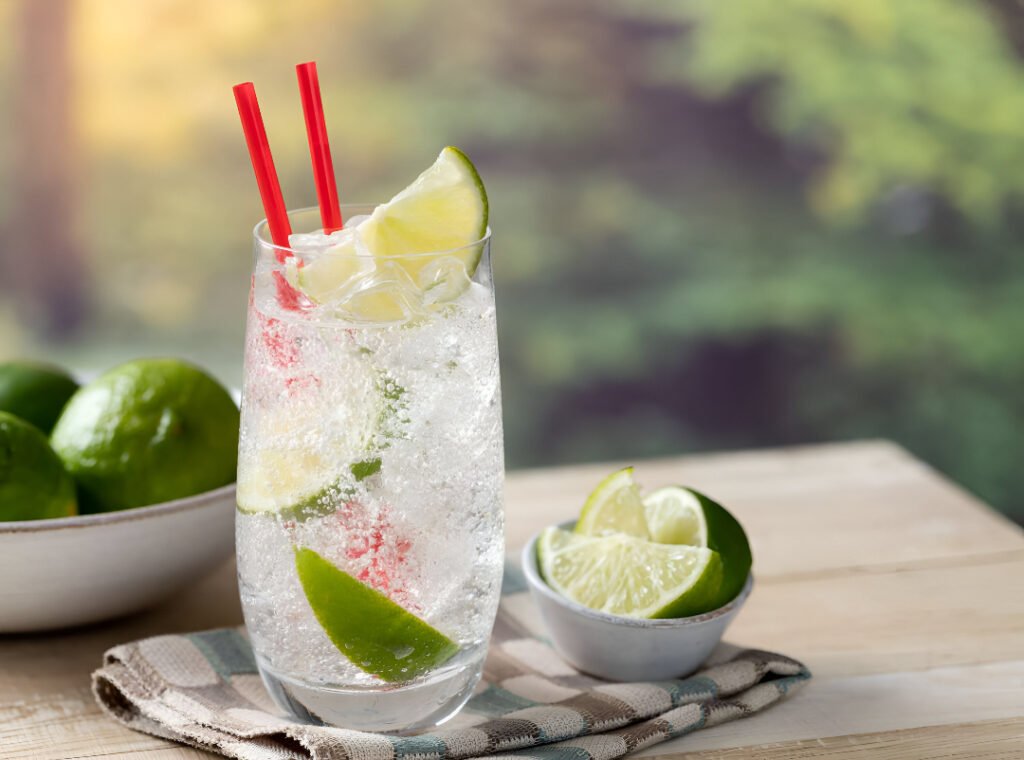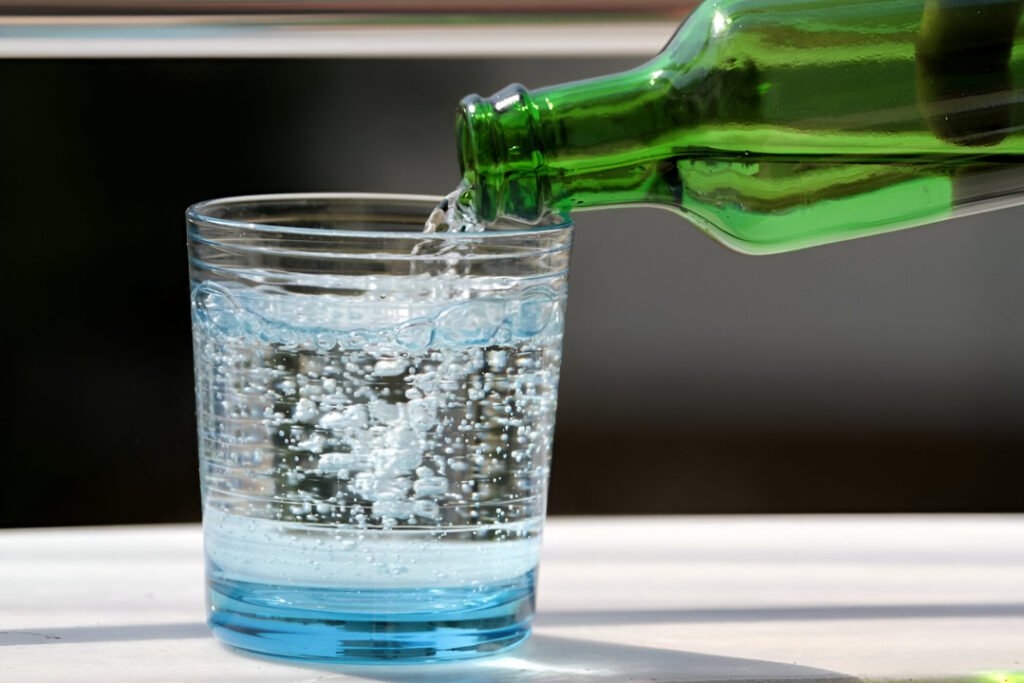
Over the past few years, sparkling water has been the trend among health-conscious consumers who are willing to bid goodbye to sugary beverages. Its bubbly goodness, no calorie count, and absence of sugar have made it a sought-after choice. Celebrities’ stylists and bodybuilders flaunt their fizzy cans on their social media handles, making this fizzy beverage the perfect choice for guilt-free drinking. Is it the perfect one for all, however?
As noted by clinical nutritionist Palak Nagpal, while sparkling water does have some health benefits, it is perhaps not for everyone, particularly those with digestive sensitivities.
What Exactly Is Sparkling Water?
Sparkling water is simply water into which carbon dioxide gas is charged under pressure and thus is an effervescent, bubbly beverage. It may be found in a number of forms, including club soda, soda water, seltzer, and natural sparkling mineral water like San Pellegrino or Perrier. Many types also have added minerals or salt for flavor.
The carbonation process creates carbonic acid, which has a slightly acidic pH of about 5 or 6. It is not strong enough to acidify your body (that is handled by your kidneys and lungs governing the pH of your blood), but it does influence some aspects of health.
The Health Benefits of Sparkling Water

Despite concerns, sparkling water can have several positive effects on your health:
· Fizzing drinking water: Sparkling water can be an enjoyable alternative to drinking plain water, even for those who think it is boring.
· Improved function swallowing: Some research suggests that the carbonation in beverages can enhance the swallowing reflexes. This may be especially beneficial to older adults.
· Satiety: Carbonated water may improve satiety and control hunger, allowing for slower food evacuation from the stomach. This is especially strong for those controlling their weight.
· Zero sugar and calories: It’s an excellent replacement for sugary sodas and artificial energy drinks. Palak Nagpal points out that the favorable “crack and fizz” of carbonated drinks can be appreciated without any sugar, caffeine, or other artificial enhancers.
But here’s the problem: it’s not for everyone.
Even with the above benefits, nutritionist Palak Nagpal emphasizes, sparkling water is not recommended for everyone. If you are dealing with any of the below, you may want to think twice before you decide to have that sparkling beverage:
· Acid reflux (GERD)
· Irritable Bowel Syndrome (IBS)
· Leaky gut or general gut sensitivity
· Frequent bloating or burping
The carbonation itself can worsen symptoms, introducing additional gas into your gut, further contributing to bloating, and causing acid reflux. The fizz, for as much as people love it, can irritate an already inflamed or irritated gut.
“Whatever works for your friend may play havoc with your stomach,” cautions Nagpal. Most people make the assumption that since sparkling water contains no calories and no sugar, it’s always a good thing, but that is not necessarily so.
Dental Issues: Is the Acid Bad for Your Teeth?

Because carbonated water is slightly acidic from carbonic acid, there is some concern regarding its impact on tooth enamel. What research indicates is that while it’s less harmful than acidic sodas or fruit juices, the acid will gradually erode enamel if drunk in excess.
To reduce the risk:
• Drink it with meals.
• Avoid drinking it during the day.
• Spit out plain water after consumption.
What About Bone Density and the Heart?
Carbonated water is not harmful to bone density, contrary to popular belief. Some carbonated waters with high mineral content may be beneficial because they have calcium. According to the National Osteoporosis Foundation, there’s no scientific basis for a claim that carbonated water causes bone loss.
As regards cardiac health, some limited studies have shown potential benefits. In a study published in 2023, researchers found evidence that carbonated water could increase blood flow rates through different blood vessels (including the middle cerebral artery). However, findings are considered preliminary, and, here we go again, larger studies are needed before we can say anything reasonable.
The Verdict: Enjoy it, but be aware of your body.
For the average healthy person, sparkling water can, and should, be part of a healthy lifestyle. It is a low-calorie, refreshing beverage and hydration option, which is relatively better than sugary beverages. However, there are some people who need to only consume carbonation in moderation depending on if they have acid reflux, some type of digestive disease, or if they have teeth issues or intend to limit their intake for some other reason and are looking for another hydration source like still water, herbal teas, coconut water, etc.









